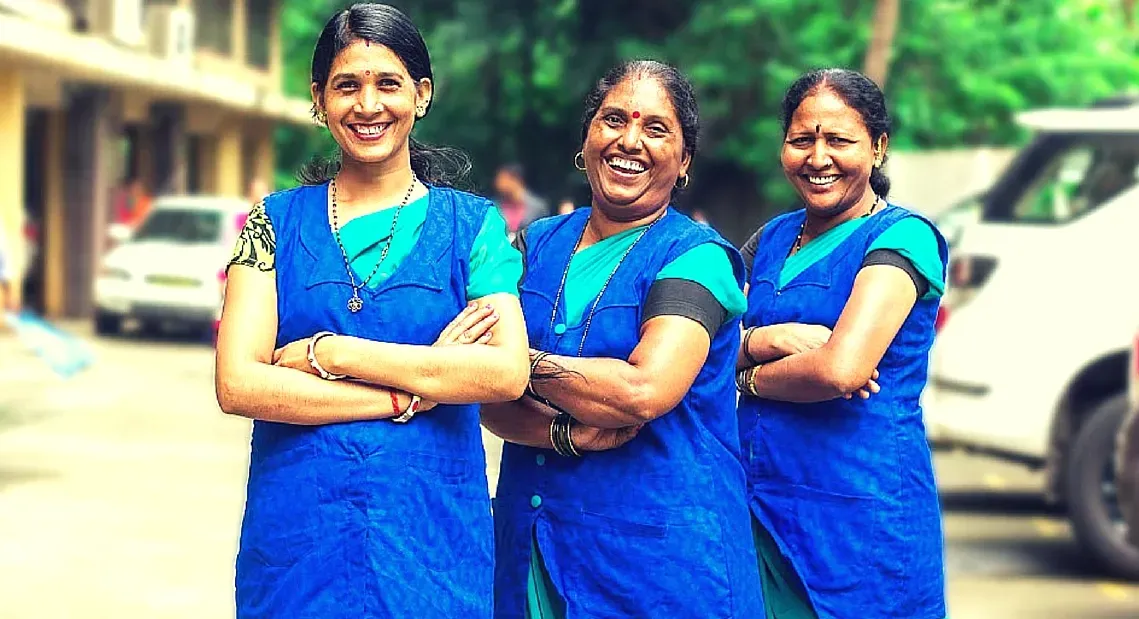Hiring Reliable Domestic Help & Service Providers: A Guide to Vetting and Contracts

By
Shrusti Naik
Posted on September 3, 2025. 10 mins

Hiring Reliable Domestic Help & Service Providers: A Guide to Vetting and Contracts
Introduction

In Indian households, domestic help is not a luxury, it is a necessity. From urban working couples to joint families, reliance on housemaids, cooks, drivers, and part-time staff has become deeply ingrained in daily life. According to a survey by the National Sample Survey Office (NSSO), nearly 4.75 million households in India employ domestic workers, with demand surging in metropolitan cities where dual-income families dominate.
Yet, stories of theft, misconduct, and disputes over wages often make headlines, highlighting the risks of informal hiring. The lack of standardized contracts and verification processes leaves both employers and workers vulnerable. For homeowners, the challenge is clear: how do you hire reliable domestic help or service providers while ensuring legal protection and mutual respect?
This guide breaks down the essentials of vetting, documentation, and contracts for Indian households, helping families create safe, professional, and sustainable working relationships with domestic staff.
Understanding the Informal Nature of Domestic Work in India
Unlike corporate jobs, domestic help in India largely operates within the informal economy. A report by the International Labour Organization notes that over 80% of domestic workers in India are not covered by formal labour protections.
This means most work arrangements are verbal, leaving scope for misunderstandings on wages, working hours, or job responsibilities. For example, a family might expect their maid to also babysit, while the worker assumes her duty ends with cleaning. Without written clarity, conflicts are inevitable.
In addition, informal hiring often bypasses background verification. This exposes households to security risks, while workers themselves lack documented proof of employment, hindering their access to loans, housing, or healthcare.
Recognizing these gaps is the first step. Professionalizing domestic work through vetting and contracts ensures protection for both parties. Also, Check out our blog on Gross Monthly Income.
The Importance of Background Verification
Safety is the foremost concern when hiring someone who will have daily access to your home. Unfortunately, most households rely on word-of-mouth recommendations. While personal referrals help, they are not fool proof.
The Ministry of Home Affairs has repeatedly emphasized the need for tenant and domestic worker police verification (Source: MHA, 2024). Many city police departments, including those in Delhi, Mumbai, and Bengaluru, have online portals for registering and verifying domestic workers. Read our Blog on How to Save Money for a House.
Verification should cover:
- Identity checks: Aadhaar card, voter ID, or ration card copies.
- Address proof: Permanent and local addresses, cross-verified if possible.
- Police verification: A certificate confirming no criminal record.
- Previous employer reference: Speaking with past employers about reliability and work ethic.
Private agencies and app-based platforms like UrbanClap (now Urban Company) also conduct multi-level background checks. While they charge a premium, they bring professionalism and accountability, especially for urban households with little time for personal vetting.
Setting Clear Expectations and Boundaries
Even before drafting a contract, families should define the scope of work and set realistic expectations. A survey by the Indian National Domestic Workers’ Movement (NDWM) found that nearly 40% of disputes arise from “scope creep,” where workers are asked to perform tasks outside their agreed duties. Read our Blog on How to Create a Smart Home on a Budget.
For example:
- A part-time maid hired for cleaning may not want to cook.
- A nanny may not be comfortable with elder-care duties.
- A driver may not agree to late-night trips.
Clarity on working hours, holidays, overtime pay, and specific responsibilities prevents conflict. Open communication at the start ensures mutual respect and sets the foundation for trust.
Why Written Contracts Are Essential
In India, contracts for domestic help are still rare. But as cities modernize, contracts are becoming a tool of protection for both workers and employers.
A written contract, simple, clear, and preferably bilingual, should cover:
- Job description: Duties, working hours, and reporting structure.
- Wages and increments: Agreed salary, mode of payment (cash, UPI, or bank transfer), and frequency of review.
- Leave policy: Sick leave, festival holidays, and vacation terms.
- Termination clause: Notice period for resignation or dismissal.
- Code of conduct: Confidentiality regarding family matters, restrictions on bringing outsiders, etc.
The Ministry of Labour and Employment has been considering formal labour protections for domestic workers, though legislation is still evolving. Until then, household-level contracts can act as safeguards.
Importantly, contracts also empower workers by providing proof of employment. This helps them open bank accounts, apply for loans, and build financial security. Also, Read our Blog on Loans Against Mutual Funds.
Using Technology and Agencies for Safer Hiring
The rise of digital platforms has transformed the way Indian households hire domestic help and service providers. Apps like Urban Company, Helper4U, and Justdial listings now connect families with verified professionals for everything from housekeeping to plumbing.
These platforms usually offer:
- Verified profiles with Aadhaar-backed IDs.
- User ratings and reviews for transparency.
- Replacement guarantees if workers leave unexpectedly.
Meanwhile, registered domestic help agencies in metros act as intermediaries—charging both the employer and the worker a fee. Though costlier, these agencies formalize hiring with contracts and background verification.
However, homeowners must be cautious about unregistered agents, as unregulated middlemen often exploit workers and provide no accountability. Checking agency registration with state labor departments adds a layer of safety.
Protecting Rights While Ensuring Fairness
Hiring domestic help is not just about safeguarding the employer—it is also about ensuring fairness to the worker. According to Statista India, the average monthly wage for domestic workers in metros ranges between ₹7,000 and ₹15,000, depending on duties and hours (Source: Statista India, 2025).
Unfair wages, long hours, and lack of leave remain common complaints. Ethical hiring involves:
- Paying fair wages in line with market rates and local labor guidelines.
- Respecting weekly offs and personal emergencies.
- Providing increments and bonuses during festivals.
- Ensuring safe working conditions, including access to clean drinking water and rest breaks.
When fairness is prioritized, worker retention improves—saving households the stress of frequent turnover. Read A Beginner’s Guide to Filing Income Tax Returns
Conclusion

Domestic help is the silent support system of countless Indian households, enabling families to balance work, childcare, and social commitments. But hiring without due diligence exposes both families and workers to risk. From police verification and written contracts to leveraging technology and ensuring fair wages, professionalizing domestic work is the need of the hour.
In a country where the informal sector dominates, households can play a role in setting higher standards of accountability. For Indian homeowners, the takeaway is simple: treating domestic employment with the same seriousness as corporate hiring protects not just your home, but also the dignity of those who serve it.
Frequently Asked Questions
Q1. Is police verification of domestic workers mandatory in India? Yes, in many Indian cities, police verification is mandatory. It ensures safety and reduces risks of crime, though compliance rates vary.
Q2. Can I hire domestic help directly without going through agencies? Yes, you can, but direct hiring requires more personal responsibility for vetting, background checks, and agreements. Agencies and apps provide convenience but at a cost.
Q3. How do I decide a fair salary for my maid or cook in India? Wages depend on city, scope of work, and hours. Checking local market averages or government-recommended minimum wages ensures fairness.
Q4. Are contracts for domestic help legally enforceable in India? Yes, contracts signed by both parties are legally valid, even for informal work, as long as they comply with labor laws and do not violate rights.
Q5. What should I do if there is a dispute with domestic help? Start with mediation and dialogue. If unresolved, approach local labor welfare boards or registered agencies. For serious issues, police assistance may be required.